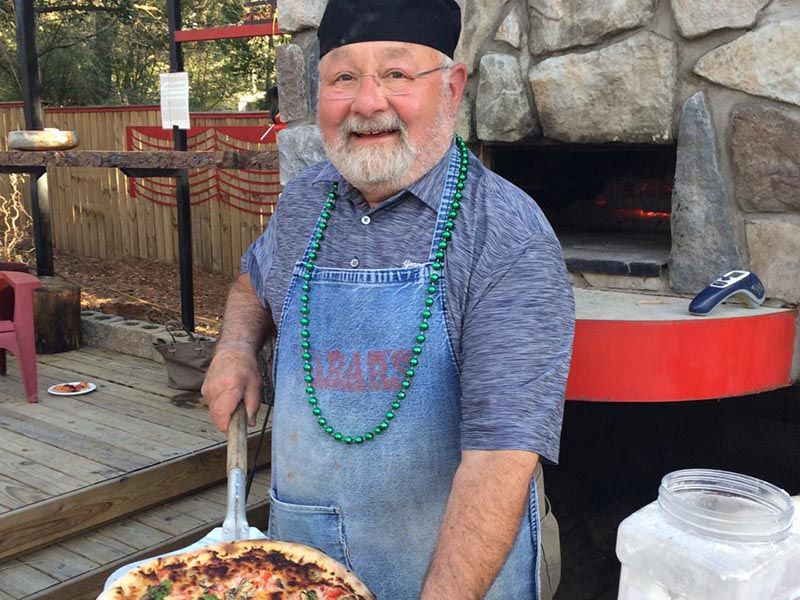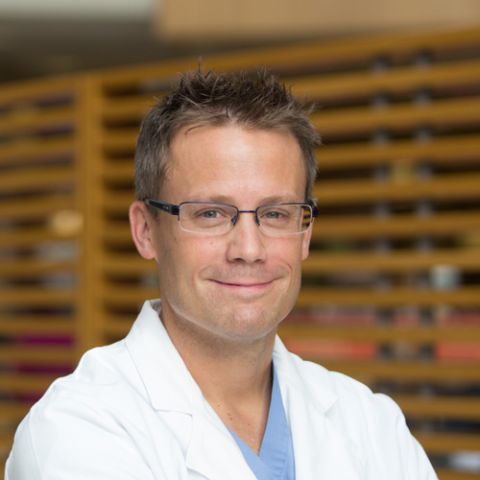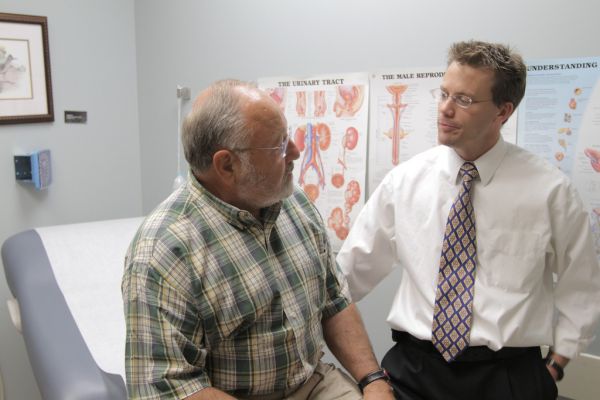How discovery of an early-stage kidney cancer was one man’s lucky day.
Six years after treatment for kidney cancer, Robert Kayser reflects on the good fortune that led to his surprise diagnosis, successful surgery, and a healthy retirement filled with bicycling, artisan bread baking and traveling in coastal Alabama.
Mine is a story of serendipity. I had been to my longtime internist for a routine physical exam, which included a chest x-ray, which was clear. However, several months later—for a still-unknown reason, perhaps quality assurance or teaching purposes—my x-ray was re-read and the radiologist concluded something looked amiss. My doctor called my home on a Friday night (that’s never good news) to say he suspected a thoracic aortic aneurysm, a potentially fatal ballooning of the aorta that requires urgent treatment, and ordered a chest CT scan.
I was relieved to learn that I did not have a thoracic aneurysm. However, thanks to the imaging, an observant radiologist found a 9 cm tumor on my left kidney. That was quite a shock. I learned later that it had probably been growing for about seven years. I had no symptoms at all. It didn’t hurt, and even my lab work was great. Who knows how long it might have gone undetected? In all likelihood, not until after spreading to the rest of my body, at which point it would have been beyond treatment.
I worked for many years as a hospital administrator in New York State and knew of Roswell Park’s reputation. A basic tenet of healthcare is that when you have a serious medical issue, you go to a place that treats that issue every day, a place that has seen many permutations of your disease and knows how to handle them. For me, that place was Roswell Park. It has doctors who have great experience with kidney cancer treatment and who do cutting-edge research as well. I learned about Dr. Thomas Schwaab and the robotic surgery program and I was particularly impressed with his involvement in developing a cancer vaccine. I had an evaluation within a few days and surgery several weeks later.
Nobody goes to Roswell Park for fun. It’s deadly serious, and people are scared. I thought about my family, unfulfilled agendas, bucket lists, and acknowledged the myth of personal immortality. The folks at Roswell know this and supported me, and my family. The genuine concern I felt from everyone, from senior managers to housekeeping staff, spoke volumes to me.
Never miss another Cancer Talk blog!
Sign up to receive our monthly Cancer Talk e-newsletter.
Sign up!I was lucky that my tumor appeared contained within the capsule or membrane around the kidney. This and other factors made me a candidate for minimally invasive robotic surgery. Dr. Schwaab removed one-third of my left kidney with the da Vinci robot, and I went home two days later with just five small holes in my belly. I had very little postoperative discomfort, and within three days I was walking a tenth of a mile to the mailbox. While I know that a person can live with just one kidney, I am very happy to be living with the one-and-two-thirds I have. Now in my sixth year post-treatment, I am still cancer-free.
To have discovered my cancer the way I did, and to have a place like Roswell Park to go to for treatment, I view myself as incredibly fortunate. At the time, I lived about a two-hour drive from Buffalo. There were closer surgeons and hospitals that treat cancer. But you don’t go to an electrician to fix your plumbing. At Roswell Park, cancer care is not a sideline; it’s a core competency!
My advice to others facing kidney cancer is to take control of your healthcare and go to the experts. We all rely on our primary care physician for advice and counsel, but we patients must decide where we go for treatment. I made the decision to go to Roswell Park.
Editor’s Note: Cancer patient outcomes and experiences may vary, even for those with the same type of cancer. An individual patient’s story should not be used as a prediction of how another patient will respond to treatment. Roswell Park is transparent about the survival rates of our patients as compared to national standards, and provides this information, when available, within the cancer type sections of this website.


